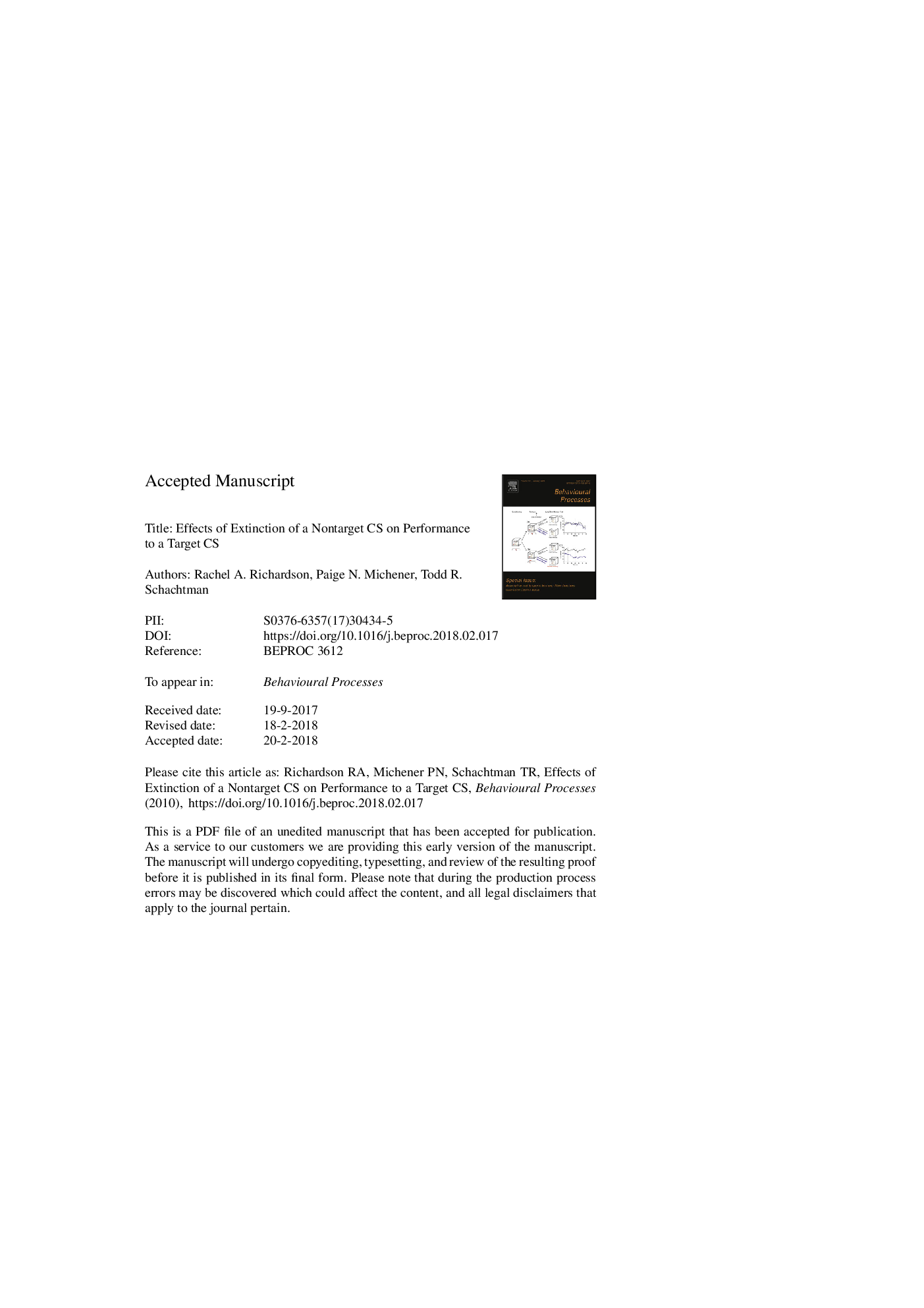| Article ID | Journal | Published Year | Pages | File Type |
|---|---|---|---|---|
| 8496907 | Behavioural Processes | 2018 | 38 Pages |
Abstract
When a target conditioned stimulus (CS A) is paired with an unconditioned stimulus in the presence of a second, conditioned stimulus (CS B) during compound conditioning trials, the associative strength of CS B can influence the magnitude of the conditioned response (CR) to CS A. For example, extinction of the competing, nontarget CS B can influence the CR to CS A. An enhancement of the CR to the target CS A due to extinction of the nontarget CS B after compound conditioning is sometimes referred to as “recovery from overshadowing” - a type of retrospective revaluation. The present experiments examined retrospective revaluation effects using a conditioned taste aversion procedure. The experiments obtained an effect on the CR to CS A following extinction of CS B. The results are discussed with respect to the comparator hypothesis, within-compound associations, and retrieval as well as other relationships between the target CS and nontarget CS.
Related Topics
Life Sciences
Agricultural and Biological Sciences
Animal Science and Zoology
Authors
Rachel A. Richardson, Paige N. Michener, Todd R. Schachtman,
